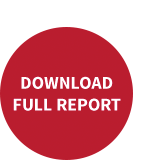EVALUATION REPORTS
USAID/Philippines conducted its 2019–2024 CDCS Mid-Course Stocktaking in two parts during 2022, a retrospective analysis of the Mission’s performance and a prospective analysis of the Philippines development context. CLAimDev supported the Mid-Course Stocktaking with research on emerging trends in each development sector and likely changes in policy in the context of the recent election of a new president of the Philippines.
ClaimDev engaged Filipino experts, mostly from academia, to conduct analyses in seven key sectors: democracy, human rights, and governance; economic growth; health; basic education; higher education; environment; and energy. The analyses covered national development priorities, taking into consideration key areas of CDCS focus; status of sector overall performance with respect to these key priorities as of mid-2022; the challenges affecting current sector performance and in the medium term; and the political and economic dynamics that bear on sector performance and challenges and how these dynamics are changing or expected to change.
The analyses noted that restarting the poverty reduction and expanding quality employment agenda would require the administration to focus on the pandemic’s impact on human capital development, particularly basic and higher education, and health. At the same time, a fast-paced restart of the economy is increasing demand for fossil fuels, which increases pollution pressures. Meanwhile, the broad economic sectors have fared differently from the pandemic, depending largely on their global integration.



